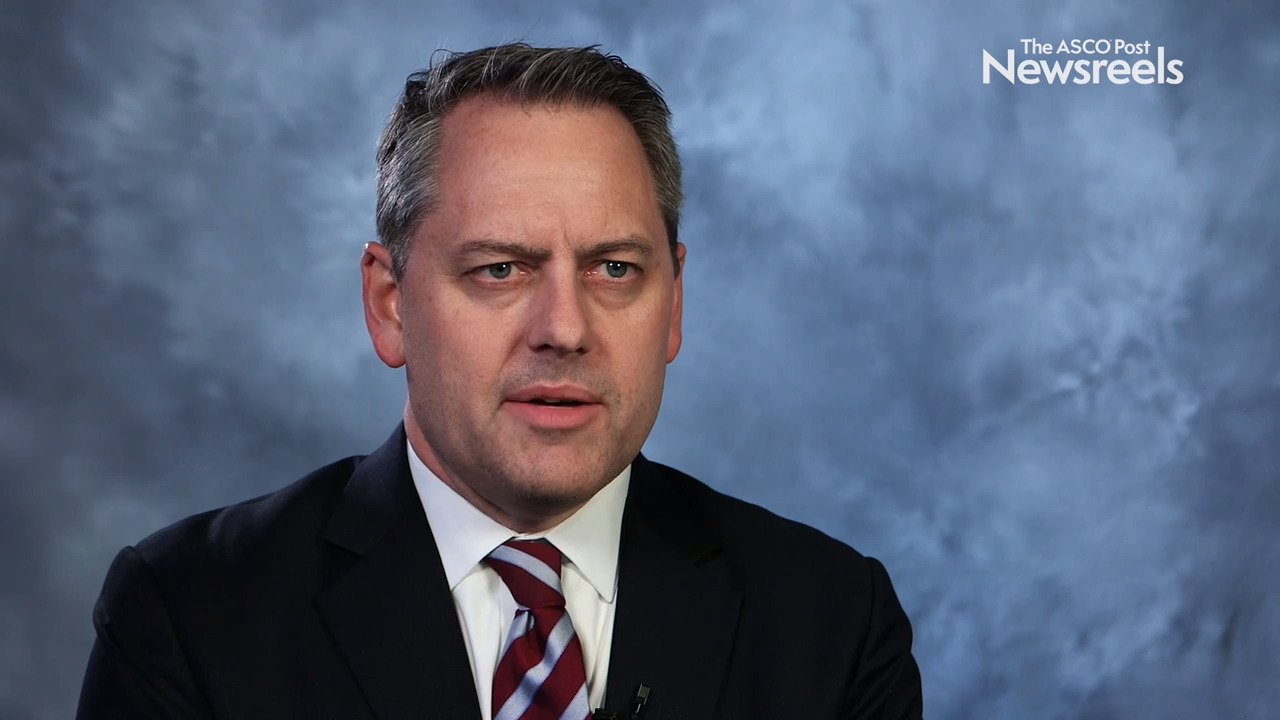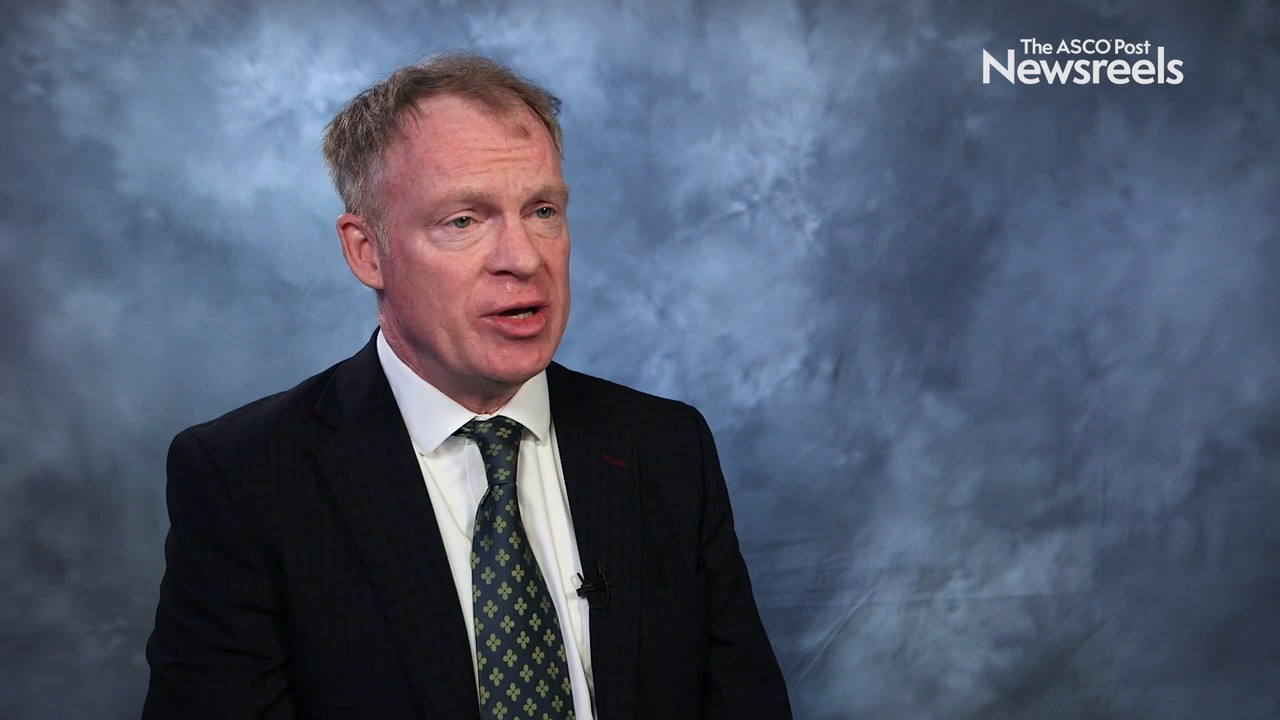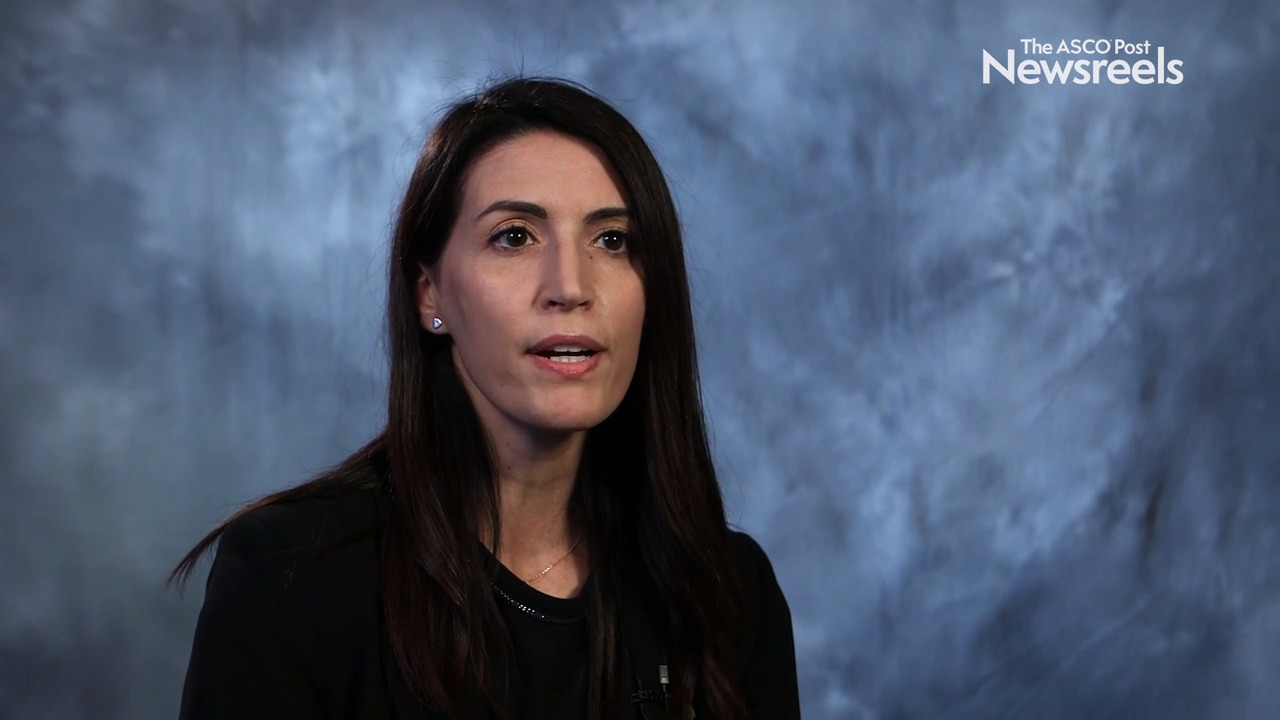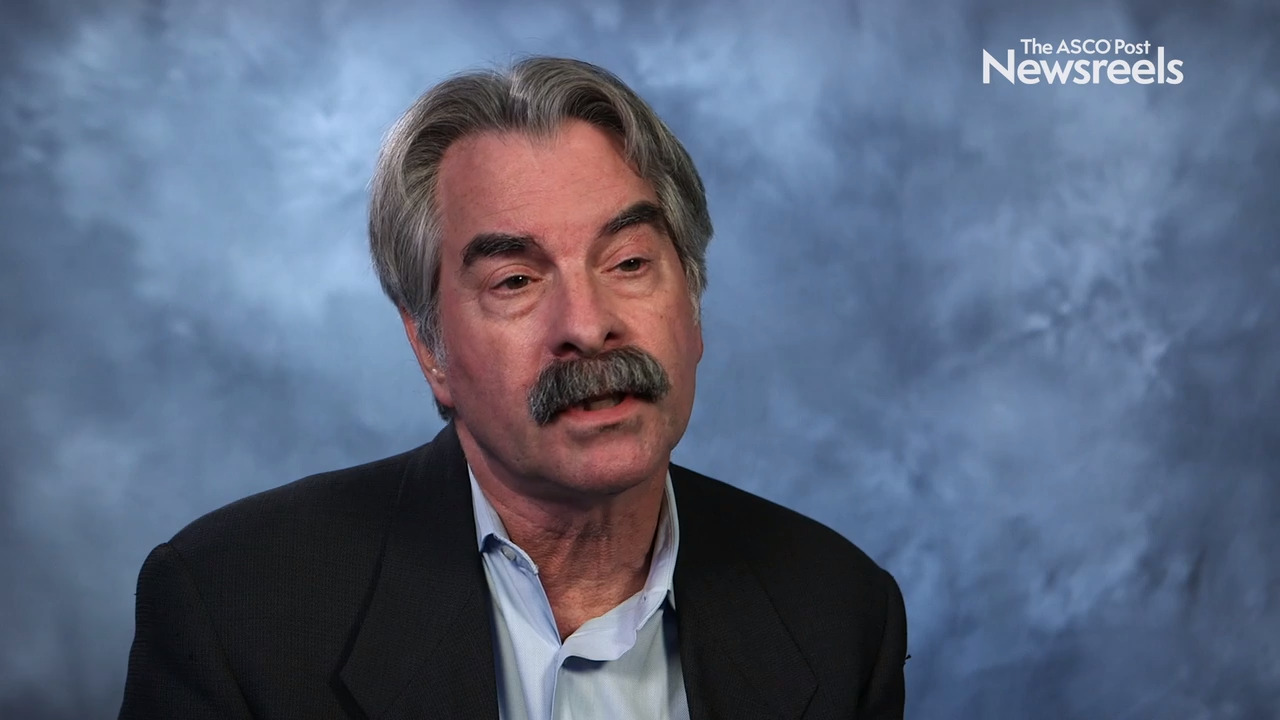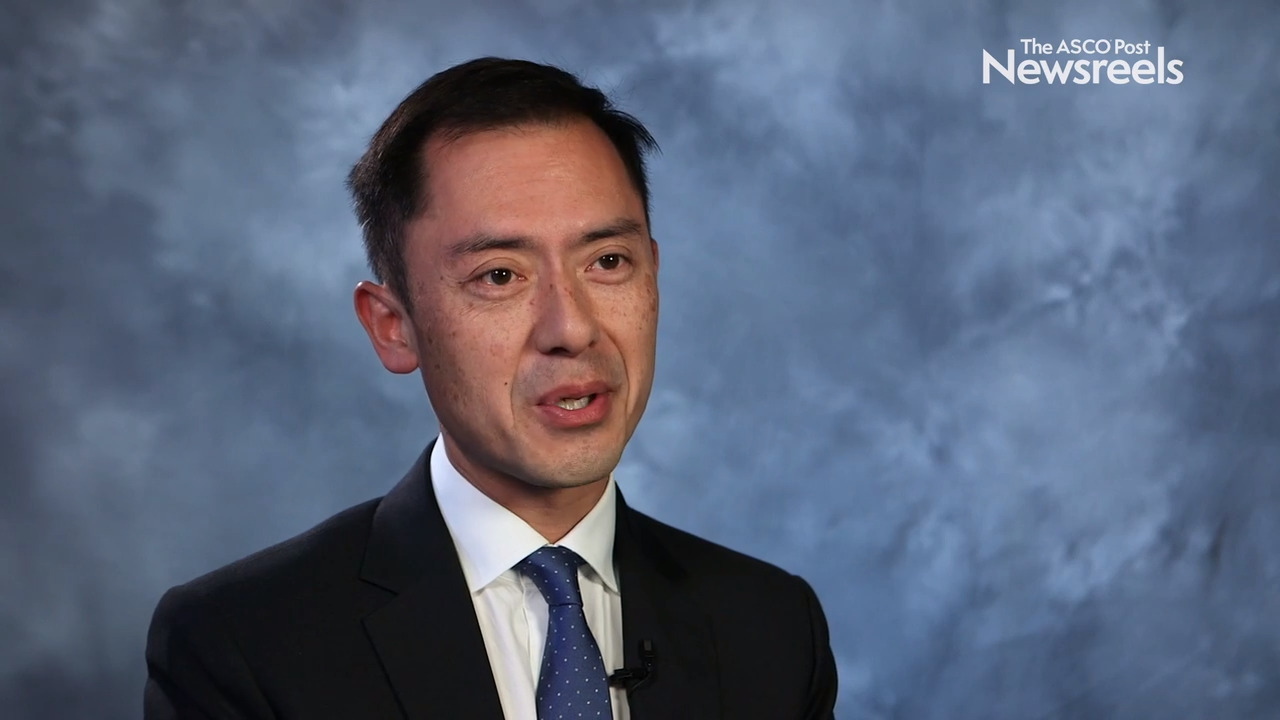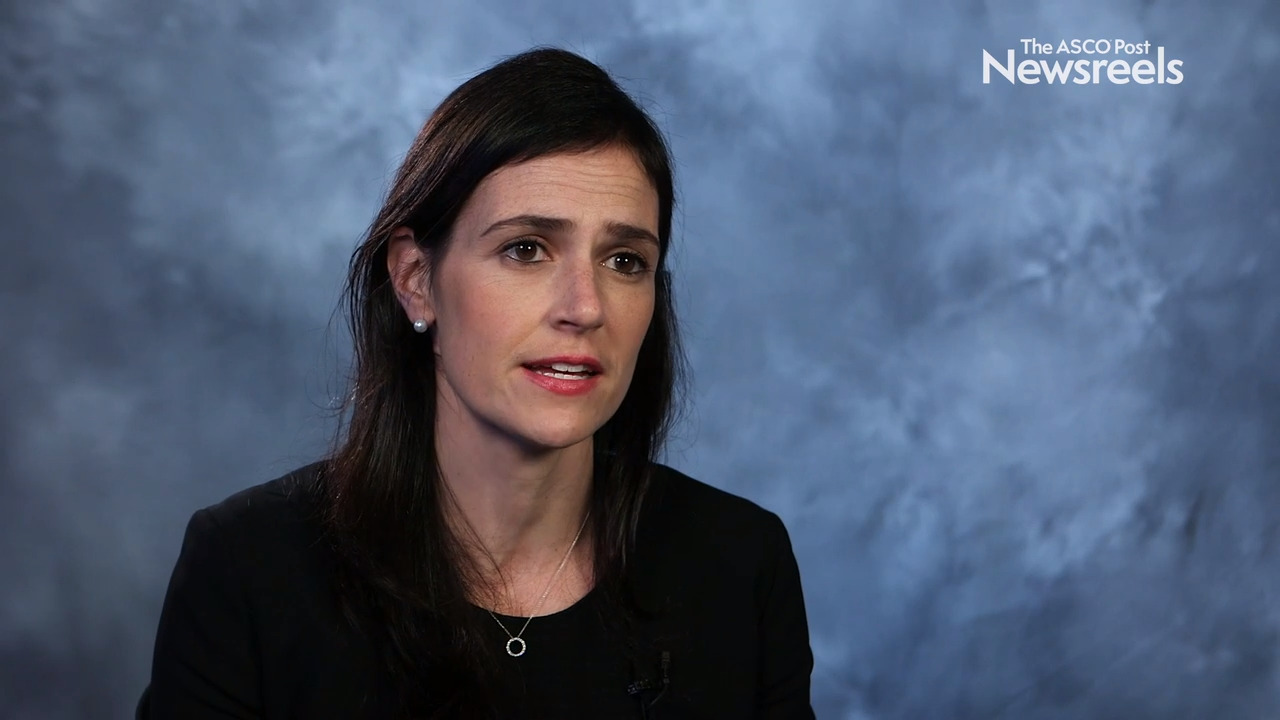AML Pioneer and Giant, Clara D. Bloomfield, MD, FASCO, Dies at 77
Physicians and scientists interested in acute myeloid leukemia (AML) have lost one of the community’s shining lights with the death of Clara D. Bloomfield, MD, FASCO, on March 1, 2020, at age 77 years. Dr. Bloomfield is well known for her more than 50 years of groundbreaking research in blood...
Selected ASH Abstracts on Chronic Lymphocytic Leukemia and Small Lymphocytic Lymphoma
ABSTRACT 355: MURANO study: Four-year analysis confirms sustained benefit (compared to bendamustine and rituximab; n = 195) of time-limited venetoclax/rituximab (n = 194) in relapsed or refractory chronic lymphocytic leukemia/small lymphocytic lymphoma (CLL/SLL; ClinicalTrials.gov NCT02005471)1...
Selected ASH Abstracts on Chronic Lymphocytic Leukemia and Small Lymphocytic Lymphoma
To complement The ASCO Post’s continued comprehensive coverage of the 2019 American Society of Hematology (ASH) Annual Meeting & Exposition, here are several abstracts selected from the meeting proceedings focusing on novel therapies for newly diagnosed chronic lymphocytic leukemia (CLL) and...
Addition of Venetoclax to Cytarabine in Pediatric Patients With Relapsed or Refractory Acute Myeloid Leukemia
In a phase I trial reported in The Lancet Oncology, Karol et al found that the combination of the BCL2 inhibitor venetoclax and the chemotherapeutic agent cytarabine with or without idarubicin produced responses in pediatric patients with relapsed or refractory acute myeloid leukemia. As noted by...
First-Line Cladribine With Concurrent or Delayed Rituximab for Hairy Cell Leukemia
In a phase II study reported in the Journal of Clinical Oncology, Robert J. Kreitman, MD, and colleagues found that achievement of minimal residual disease–free complete remission for patients with hairy cell leukemia was enhanced by adding concurrent rituximab to first-line cladribine; a lesser...
Selected ASH Abstracts on Novel Treatments in Acute Lymphoblastic Leukemia
To complement The ASCO Post’s continued comprehensive coverage of the 2019 American Society of Hematology (ASH) Annual Meeting & Exposition, here are several abstracts selected from the meeting proceedings focusing on novel therapies for newly diagnosed and relapsed or refractory acute...
Expert Point of View: James N. Gerson, MD
James N. Gerson, MD, Assistant Professor of Medicine at Perelman School of Medicine, University of Pennsylvania, Philadelphia, commented on the implications of the findings from CAPTIVATE. “Upfront therapy for chronic lymphocytic leukemia (CLL) is rapidly evolving. We now have three...
Oral Regimen of Ibrutinib/Venetoclax Achieves High Rates of Undetectable Minimal Residual Disease in CLL
Updated results of the phase II CAPTIVATE trial continue to show high response rates as well as high rates of undetectable minimal residual disease (MRD) with ibrutinib plus venetoclax as front-line treatment of chronic lymphocytic leukemia (CLL) in patients under the age of 70 years. The...
Treating Patients With Chronic Lymphocytic Leukemia in 2020
With the availability of a number of effective targeted agents for the treatment of chronic lymphocytic leukemia (CLL), the question arises whether chemotherapy still has a role in treating this malignancy. At the 2019 American Society of Hematology (ASH) Annual Meeting & Exposition, CLL...
Expert Point of View: Javier Pinilla-Ibarz, MD, PhD
Javier Pinilla-Ibarz, MD, PhD, of Moffitt Cancer Center, Tampa, Florida, commented on this study: “ELEVATE TN compared front-line treatment with acalabrutinib alone or in combination with obinutuzumab vs obinutuzumab/chlorambucil and showed that a second-generation Bruton’s tyrosine kinase (BTK)...
Acalabrutinib Plus Obinutuzumab Superior to Obinutuzumab Plus Chlorambucil as Front-Line Treatment of CLL
Ibrutinib was the first Bruton’s tyrosine kinase (BTK) inhibitor to dramatically transform the treatment of patients with chronic lymphocytic leukemia (CLL) and other hematologic malignancies. The second-generation BTK inhibitor acalabrutinib is a more selective BTK inhibitor designed to have an...
FLAG-GO Achieves Deeper Remission Than FLAG-IDA in Favorable-Risk AML
Gemtuzumab ozogamicin, once approved in 2000 for the treatment of acute myeloid leukemia (AML), was taken off the market in 2010 due to toxicity concerns. Idarubicin has been used in place of gemtuzumab ozogamicin in some chemotherapy regimens. Gemtuzumab ozogamicin was reintroduced to the market...
Highlights From ASH 2019 Included New Data in Leukemia, Lymphoma, and Multiple Myeloma
The ASH 2019 Annual Meeting & Exposition featured countless important sessions and lectures. It would be impossible to attend all the symposia, oral presentations, poster presentations, and special events. Below, we have selected some presentation highlights to supplement our coverage of the...
Expert Point of View: Javier Pinilla-Ibarz, MD, PhD
Javier Pinilla-Ibarz, MD, PhD, Moffitt Cancer Center, Tampa, Florida, commented on this study: “ELEVATE TN compared front-line treatment with acalabrutinib alone or in combination with obinutuzumab vs obinutuzumab/chlorambucil and showed that a second-generation Bruton’s tyrosine kinase (BTK)...
Pivotal Trial Evaluates Second-Generation BTK Inhibitor Alone and in Combination With Obinutuzumab for First-Line Treatment of CLL
The second-generation Bruton’s tyrosine kinase (BTK) inhibitor acalabrutinib, alone, or in combination with obinutuzumab significantly improved progression-free survival compared with a standard combination of obinutuzumab/chlorambucil in treatment-naive patients with chronic lympocytic leukemia...
Bruton’s Tyrosine Kinase Inhibitor Yields High Overall Response Rates in del(17p) CLL and SLL
In findings of the SEQUOIA trial and updated results of the AU-003 trial,1,2 zanubrutinib, a Bruton’s tyrosine inhibitor (BTK), was shown to produce high overall response rates for patients with chronic lymphocytic leukemia (CLL) and small lymphocytic lymphoma (SLL), even in the presence of...
Expert Point of View: Howard J. Weinstein, MD, and Robert A. Brodsky, MD
Commenting on the Children’s Oncology Group AALL1331 study, Howard J. Weinstein, MD, Chief of Pediatric HematologyOncology at Massachusetts General Hospital for Children and Harvard Medical School in Boston, said: “These are very promising results for children, adolescents, and young adults who...
Blinatumomab Post-reinduction Consolidation Improves Event-Free, Overall Survival vs Chemotherapy in Young Patients With B-Cell ALL
Among children, adolescents, and young adults with B-cell acute lymphoblastic leukemia (ALL), the bispecific T-cell engager blinatumomab improved event-free survival and overall survival, compared with standard chemotherapy, as post-reinduction consolidation therapy at first relapse prior to...
Conference Highlights From the 2019 American Society of Hematology Annual Meeting & Exposition
More than 25,000 specialists in hematology from over 115 countries attended the 61st American Society of Hematology (ASH) Annual Meeting & Exposition held last December in Orlando. The conference featured a stunning array of 4,900 abstracts with impressive new data in the treatment of multiple...
Dengue Virus Infection May Increase Risk of Developing Leukemia
Compared to individuals without a history of dengue virus infection, those previously infected with the virus had over twice the risk of developing leukemia, with the highest risk occurring between 3 and 6 years after infection. The results of a study conducted in Taiwan were published by Chien et...
Dasatinib vs Imatinib in Pediatric Philadelphia Chromosome–Positive ALL
In a Chinese phase III trial reported in JAMA Oncology, Shen et al found that dasatinib was associated was superior event-free survival vs imatinib when combined with intensive chemotherapy in pediatric patients with Philadelphia chromosome–positive acute lymphoblastic leukemia (ALL) not receiving...
Expert Point of View: Joshua Brody, MD
Joshua Brody, MD, Director of the Lymphoma Immunotherapy Program at the Icahn School of Medicine at Mount Sinai, New York, commented on where zanubrutinib might fit in once the drug is approved. “The two abstracts presented at ASH 2019 …demonstrated remarkably high response rates, durations of...
Two Clinical Trials Show Zanubrutinib Achieves High Response Rates in del(17p) CLL and SLL
The Bruton’s tyrosine kinase inhibitor (BTK) zanubrutinib continues to achieve high overall response rates for patients with chronic lymphocytic leukemia (CLL) and small lymphocytic lymphoma (SLL), even in the presence of high-risk cytogenetics, according to findings from two different trials...
Yale Cancer Center Study Suggests New Approaches Needed to Manage Ibrutinib-Related Toxicities in Patients With CLL
New findings by Yale Cancer Center and Smilow Cancer Hospital researchers show that, as the use of ibrutinib increases in patients with chronic lymphocytic leukemia (CLL), so do the rates of patients who stop taking the drug. The study was presented at the 2019 American Society of Hematology (ASH)...
Oral CC-486 Maintenance Therapy Extends Survival in Older Patients With AML
Use of CC-486—an investigational oral form of azacitidine—as maintenance therapy significantly improved overall survival and relapse-free survival in older patients with newly diagnosed acute myeloid leukemia (AML) who were in remission following induction chemotherapy with or without consolidation ...
ADMIRAL Trial: More Than Standard Chemotherapy Needed for FLT3-Mutant Advanced AML
The important ADMIRAL trial, reported by Perl et al in The New England Journal of Medicine1 and reviewed in this issue of The ASCO Post, shows the efficacy of a specific FLT3 inhibitor in patients with advanced acute myeloid leukemia (AML) and enhances the era of personalized medicine in leukemia. ...
Cancer Incidence in World Trade Center Responders to the September 11 Attacks
A study published by Shapiro et al in JNCI Cancer Spectrum showed that responders to the World Trade Center site after the attacks on September 11, 2001, have statistically significant elevations in cancer incidence for all cancer sites combined, and for prostate and thyroid cancer and leukemia....
Conditioning Intensity for Allogeneic Transplantation in Patients With AML
In a study reported in the Journal of Clinical Oncology, Hourigan et al found that reduced-intensity conditioning for allogeneic hematopoietic cell transplantation was associated with poorer outcomes vs myeloablative conditioning in patients with acute myeloid leukemia (AML) who had genomic...
Expert Point of View: Howard J. Weinstein, MD
Commenting on the blinatumomab study, Howard J. Weinstein, MD, Chief of Pediatric Hematology-Oncology at Massachusetts General Hospital for Children and Harvard Medical School in Boston, said: “These are very promising results for children, adolescents, and young adults who have had a first...
Selected Abstracts on Novel Therapies for Chronic Myeloid Leukemia
To complement The ASCO Post’s comprehensive coverage of the 2019 American Society of Hematology (ASH) Annual Meeting & Exposition, here are several abstracts selected from the meeting proceedings focusing on novel therapeutic regimens for chronic myeloid leukemia (CML). For full details of...
Blinatumomab Outperforms Chemotherapy as Post-Reinduction Consolidation Therapy in Younger Patients With B-Cell ALL
Blinatumomab was superior to standard chemotherapy in children, adolescents, and young adults at the first relapse of B-cell acute lymphoblastic leukemia (ALL) as post-reinduction consolidation therapy prior to hematopoietic stem cell transplant (HSCT), according to the results of a late-breaking...
ADMIRAL Trial: Gilteritinib Improves Overall Survival in Relapsed or Refractory FLT3-Mutated AML
As reported in The New England Journal of Medicine by Alexander E. Perl, MD, of Abramson Cancer Center, University of Pennsylvania, and colleagues, the phase III ADMIRAL trial showed improved overall survival with the oral FMS-like tyrosine kinase 3 (FLT3) inhibitor gilteritinib vs salvage...
Activity of Ruxolitinib in Chronic Neutrophilic Leukemia and Atypical Chronic Myeloid Leukemia
In a phase II study reported in the Journal of Clinical Oncology, Dao et al found that the JAK1/2 inhibitor ruxolitinib was active in patients with chronic neutrophilic leukemia (CNL), with less activity observed in those with atypical chronic myeloid leukemia (CML) and greater activity observed...
Asciminib for Patients With CML After Failure of ABL Kinase Inhibitor Treatment
In a phase I trial reported in The New England Journal of Medicine, Hughes et al found that asciminib, an oral BCR-ABL1 inhibitor with a mechanism of action different from available ABL1 tyrosine kinase inhibitors, was active in patients with chronic myeloid leukemia (CML) after failure of ABL...
Fractionated Tisagenlecleucel Infusion for Adults With B-Cell Acute Lymphoblastic Leukemia May Improve Safety Without Reducing Efficacy
As reported by Noelle V. Frey, MD, and colleagues in the Journal of Clinical Oncology, single-center experience with the anti-CD19 chimeric antigen receptor (CAR) T-cell therapy tisagenlecleucel has shown that high-dose fractionated infusion with the ability to modify dosing in case of early signs...
Gilteritinib for Relapsed or Refractory AML With FLT3 Mutation
Late in 2018, the FLT3 inhibitor gilteritinib was approved for the treatment of adult patients who have relapsed or refractory acute myeloid leukemia (AML) with a FLT3 mutation, as detected by a U.S. Food and Drug Administration (FDA)-approved test.1,2 The FDA also approved an expanded indication...
Selected Abstracts From the 2019 ASH Annual Meeting & Exposition
To complement The ASCO Post’s comprehensive coverage of the 2019 American Society of Hematology (ASH) Annual Meeting & Exposition, here are several abstracts selected from the meeting proceedings focusing on novel therapeutic regimens for acute myeloid leukemia (AML). For full details of these...
Acalabrutinib for Adult Patients With Chronic Lymphocytic Leukemia or Small Lymphocytic Lymphoma
On November 21, 2019, the Bruton’s tyrosine kinase (BTK) inhibitor acalabrutinib was approved for the treatment of adults with chronic lymphocytic leukemia (CLL) or small lymphocytic lymphoma (SLL).1,2 The review resulting in approval was conducted under Project Orbis, an initiative of the U.S....
Risk of Asparaginase-Associated Pancreatitis in Patients With Acute Lymphoblastic Leukemia
In a study reported in the Journal of Clinical Oncology, Rank et al found a similar risk of asparaginase-associated pancreatitis in older children, adolescents, and adults and greater associated morbidity in adolescents with acute lymphoblastic leukemia treated according to the Nordic Society of...
Jeff P. Sharman, MD, on CLL: Trial Results on Acalabrutinib, Obinutuzumab, and Chlorambucil
Jeff P. Sharman, MD, of the Willamette Valley Cancer Institute and US Oncology Research, discusses phase III findings from the ELEVATE TN study, which showed that acalabrutinib plus obinutuzumab and acalabrutinib monotherapy improved progression-free survival in patients with treatment-naive chronic lymphocytic leukemia (Abstract 31).
Patrick A. Brown, MD, on B-Cell ALL in Children, Adolescents, and Young Adults: Blinatumomab vs Chemotherapy
Patrick A. Brown, MD, of Johns Hopkins University, discusses phase III findings from a Children’s Oncology Group Study showing that blinatumomab was superior to chemotherapy in terms of efficacy and tolerability for young patients as a post-reinduction therapy in the setting of high- and intermediate-risk first relapse of B-cell acute lymphoblastic leukemia (Abstract LBA-1).
Ilaria Iacobucci, PhD, on AML and MDS: Moving Beyond Gene Panel–Based Classifications
Ilaria Iacobucci, PhD, of St. Jude Children’s Research Hospital, discusses her work to more accurately define mutation subtypes in acute myeloid leukemia and myelodysplastic syndromes, as well as the implications for diagnosis, prognosis, and treatment (Abstract LBA-4 ).
Jerald P. Radich, MD, on CML: Predicting Deep Molecular Response to Treatment
Jerald P. Radich, MD, of the Fred Hutchinson Cancer Research Center, discusses a gene-expression model that distinguishes patients with chronic myeloid leukemia who achieved a deep molecular response from those with a poor response to treatment. This work could yield new therapeutic targets that could potentially turn a poor responder into a good responder who might even achieve treatment-free remission (Abstract 665).
Andrew H. Wei, MBBS, PhD, on AML: Results From the QUAZAR Trial on Oral Azacitidine
Andrew H. Wei, MBBS, PhD, of The Alfred Hospital, Melbourne, discusses phase III findings on oral azacitidine (CC-486), the first treatment used in the maintenance setting shown to improve both overall and disease-free survival in patients with acute myeloid leukemia that is in remission following induction chemotherapy (Abstract LBA-3).
Jennifer Crombie, MD, on Relapsed or Refractory CLL/SLL: Results From a Phase I Trial of Duvelisib and Venetoclax
Jennifer Crombie, MD, of Dana-Farber Cancer Institute, discusses early study results which showed that duvelisib plus venetoclax showed activity in patients with relapsed or refractory chronic lymphocytic leukemia/small lymphocytic lymphoma, with no dose-limiting toxicities observed (Abstract 1763).
ASH 2019: Blinatumomab vs Standard Chemotherapy for Pediatric Patients With Relapsed B-ALL
Blinatumomab improved survival in children with relapsed B-acute lymphoblastic leukemia (B-ALL) compared with standard chemotherapy, accordings to findings from a study presented by Brown et al at the 2019 American Society of Hematology (ASH) Annual Meeting & Exposition (Abstract LBA-1)....
ASH 2019: New Genomic Mutational and Expressional Data in AML, MDS
Researchers have completed the first comprehensive analysis combining full genomic sequencing and gene-expression profiles of more than 1,300 patients with acute myeloid leukemia (AML) or myelodysplastic syndrome (MDS). The research was presented by Iacobucci et al during the 2019 American Society...
ASH 2019: Oral Azacitidine Improves Survival in Older Patients With AML in First Remission
Treatment with an investigational oral form of azacitidine, CC-486, improved overall survival in older patients with newly diagnosed acute myeloid leukemia (AML) who were in remission following standard induction chemotherapy with or without consolidation therapy, according to a phase III study...
ASH 2019: Should African American Patients With AML and Evidence of Abnormal Kidney Function Be Enrolled Into Clinical Trials?
A study of more than 1,000 patients with acute myeloid leukemia (AML) revealed that African Americans were more likely to have evidence of abnormal kidney functioning than whites, but this was not associated with any difference in overall survival. The findings, presented by Statler et al at the...
ASH 2019: Genomic Features of AML in Patients Aged 60 or Older May Predict Stem Cell Transplant Outcome
For older patients with acute myeloid leukemia (AML), the prospects for success of a stem cell transplant can often be predicted based on the particular set of leukemic genetic characteristics, according to results presented by Murdock et al at the 2019 American Society of Hematology (ASH) Annual...
